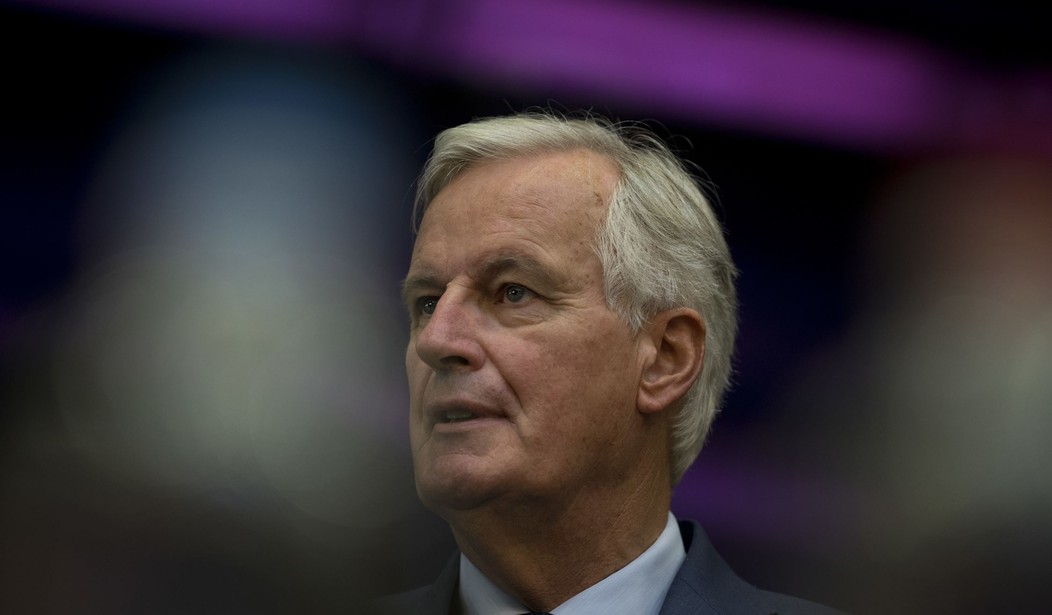France currently has one of the highest levels of debt in Europe with more on the way. Awareness of this debt led the EU to place France into an "excessive-deficit procedure" this summer which meant France had a deadline to come up with a plan for cutting the debt to more manageable levels.
Today, France announced that it would miss the deadline to submit its plan for dealing with the debt. Also today the country's new Prime Minister announced that he was discovering the problem was "very serious."
“I am discovering that the country’s budgetary situation is very serious,” said Michel Barnier, who was appointed by President Emmanuel Macron this month after a summer in which France hobbled along effectively without a government. Mr. Barnier told the Agence France-Presse news agency that the budget hole required immediate and responsible action.
The warning came as the head of the Court of Auditors, the supreme body for auditing government spending, told Parliament on Wednesday that the country would miss a target to lower its deficit this year, and would have to find ways to come up with an eye-popping 110 billion euros in savings in the next several years to comply with E.U. budgetary rules.
The head of the French Central Bank summed it up this way, "We have too much debt, too much deficit." France's debt-to-gdp currently stands at 111% and unless cuts are made the deficit will continue to rise in the next few years.
The country’s debt-to-GDP ratio of 111% is similar to Italy’s before the euro crisis in the early 2010s, and is set to rise. S&P Global, a ratings agency, downgraded the French government’s sovereign-debt rating from AA to AA- on May 31st...
The problem is that, without spending cuts, France’s deficit will widen to 5.7% this year and 5.9% next, according to the French senate’s finance committee. Even if this is not crisis-inducing, it does represent a large and growing problem.
What's striking about all of this is how similar France's situation is to that of the US. France's currently deficits are slightly lower than ours. It's debt, at 111% of GDP, is higher than ours, but not by a lot as the Wall Street Journal pointed out Monday.
This year’s budget deficit is on track to top $1.9 trillion, or more than 6% of economic output, a threshold reached only around World War II, the 2008 financial crisis and the Covid-19 pandemic. Publicly held federal debt—the sum of all deficits—just passed $28 trillion or almost 100% of GDP.
If Congress does nothing, the total debt will climb by another $22 trillion through 2034. Interest costs alone are poised to exceed annual defense spending.
Tens years from now, our debt to GDP level will be 122% if nothing changes. In other words, France is now where we will be in just a few years. Harvard economist Jason Furman sounds a bit like the head of the French bank when he says, "We’ve learned we borrowed more than we realized we could. And we’ve actually borrowed more than we expected."
Of course the US doesn't have an EU looking over its shoulder and forcing it into an "excessive-debt procedure" but maybe we need one. The thrust of the WSJ story was that despite our current trajectory, neither political party spends much time talking about the debt.
The country’s fiscal trajectory merits only sporadic mentions by the major-party presidential nominees, let alone a serious plan to address it. Instead, the candidates are tripping over each other to make expensive promises to voters.
Economists and policymakers already worry that the growing debt pile could put upward pressure on interest rates, restraining economic growth, crowding out other priorities and potentially impairing Washington’s ability to borrow in case of a war or another crisis. There have been scattered warning signs already, including downgrades to the U.S. credit rating and lackluster demand for Treasury debt at some auctions.
We're not in a crisis at the moment but two years of inflation have demonstrated that congress spending money like drunken sailors on shore leave cannot continue forever without consequences. At some point we need a plan to manage the deficit and to deal with the entitlements. If the next president doesn't take these problems seriously, we'll be standing about where France is now by the next election.








